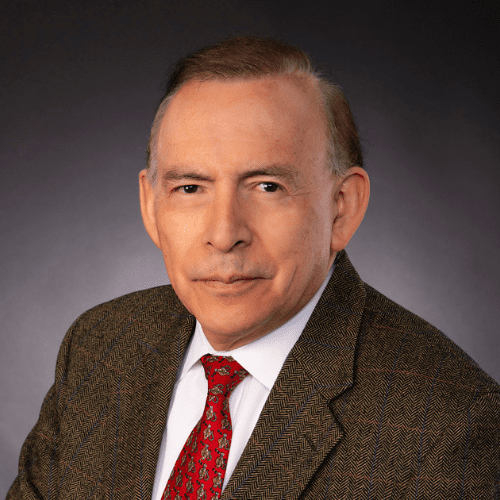In the conflict-ridden realm of international relations, certain terms are particularly useful, and one of them is “Red Lines.” Derived from the concept of a “line in the sand,” first employed in antiquity, the term “Red Lines” appears to have emerged in the 1970s to denote what one nation regards as unacceptable from other nations. In short, it is an implicit threat.
Russian Red Lines
Vladimir Putin, self-anointed restorer of the Russian empire, has tossed about the term repeatedly in recent years. “I hope nobody will get it into their heads to cross Russia’s so-called red line,” he warned in April 2021. “Where it will be drawn, we will decide ourselves in each specific case.” These red lines, although addressing a variety of issues, have been proclaimed frequently. At the end of that November, Putin announced that Russia would take action if NATO crossed its “red lines” on Ukraine, saying that the deployment of offensive missile capabilities on Ukrainian soil would serve as a trigger. In mid-December, as Russian military forces massed within striking distance of Ukraine, the Russian foreign ministry demanded that NATO not only rule out any further expansion, but remove any troops or weapons from NATO members Poland, Estonia, Latvia, Lithuania, and the Balkan countries and obtain Russian permission before holding any military drills in Eastern Europe, the Caucasus, or Central Asia.
Finally, on February 24, 2022, Putin―ignoring a U.S. offer to negotiate some of these items―sent a massive Russian military force pouring into Ukraine in a full-scale invasion. “This is the red line that I talked about multiple times,” he said, and “they have crossed it.” Most nations were not impressed by this justification, for the Russian invasion and subsequent annexation of large portions of Ukraine were clear violations of international law and, as such, were condemned by the United Nations General Assembly and the International Court of Justice.
Of course, Putin’s red lines and international aggression, though particularly blatant, are hardly the only features of this kind that have appeared throughout Russian or world history.
American and Chinese Red Lines
The United States has a lengthy record in this regard. As Professor Matthew Waxman of Columbia Law School has written, the Monroe Doctrine of 1823 involved “drawing a red line―with an implicit war threat” against “any European efforts to colonize or reassert control in the Western Hemisphere.” Given the relative weakness of the United States at the time, the U.S. government did not attempt to enforce President James Monroe’s grandiose pronouncement. But, with the emergence of the United States as a great power, its government expanded the Monroe Doctrine to justify frequent U.S. meddling in hemispheric affairs, including conquering and annexing Latin American territory. Even in recent decades, when U.S. annexations have become a relic of the past, the U.S. government has engaged in military intervention in other lands, especially in the Caribbean and Central America, but also in Asia and the Middle East (where President George W. Bush drew what he called “a line in the sand”).
In recent years, as China’s military and economic power have grown, its government, too, has begun emphasizing its red lines. Meeting with U.S. President Joseph Biden in mid-November 2022, Chinese President Xi Jinping declared that Taiwan was the “first red line that must not be crossed.” Xi did not mention the tension-fraught situation in the South China Sea, where China had set up military fortifications on islands claimed by its neighbors, including Vietnam and the Philippines. But here, as well, China had red lines―leading to the current dangerous confrontations between U.S. and Chinese warships in the region. Sharply rejecting a 2016 ruling by the Permanent Court of Arbitration at the Hague that denied China’s control of the area, the Chinese government continued to build up fortifications on the disputed islands. Furthermore, Chinese troops have continued for more than six decades to engage in violent military clashes with Indian troops along the disputed border, in the Himalayan region, between their two nations.
The Dangers of Red Lines Drawn by Individual Nations
Although it could be argued that red lines are only an innocent expression of what a nation considers unacceptable in world affairs, it’s worth noting that they are employed especially by major nations. The “great powers,” after all, have the military strength to give their warnings some credibility. Conversely, smaller, weaker nations do not usually bother to issue such pronouncements, as their warnings―and even their interests―are rarely taken as seriously. For this reason, the issuance of red lines usually boils down to a matter of what nation has the power to compel other nations to accept its demands.
Consequently, red lines lead inevitably to spheres of influence that other nations are supposed to respect―including a U.S. sphere in Latin America, a Russian sphere in Europe, and a Chinese sphere in Asia. Naturally, people and nations living in the shadow of these major powers are not enthusiastic about this arrangement, which explains why many Latin Americans want the Yankees to go home, many Europeans fear Russian hegemony, and many Asians are wary of the rise of China.
Another problem with the issuance of red lines is their tendency to inspire international conflict and war. Given their roots in the professed interests of a single nation, they do not necessarily coincide with the interests of other nations. In this competitive situation, conflict is almost inevitable. Where, in these circumstances, is there a place for collective action to fashion a common agreement―one recognizing the fundamental interests of all nations?
A World Federalist Alternative
Rather than a world of red lines proclaimed by a few powerful nations, what humanity needs is a strengthened United Nations―a global federation of nations in which competing national priorities are reconciled and enforced through agreements, treaties, and international law.
Setting red lines for the world is too important to be left to individual, self-interested countries. They should be set―and respected―by all.



























